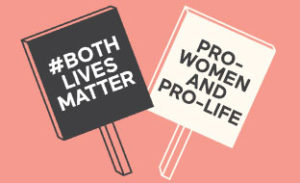As part of a series of reflections for the 50th anniversary of the 1967 Abortion Act, Nola Leach, CARE Chief Executive, considers how, with the benefit of fifty years of lived experience and government data, we can now understand the impact of that law change. Has the ’67 Act benefited or harmed women?
We hope that these contributions from people across the British Isles and Ireland will provide some much needed context and perspective to this sensitive issue.
“Individualism has impacted every area of our lives. Instead of reaching out and making decisions based upon what is best for society, or the most vulnerable among us, our choices now reflect what would be most convenient to us. No other policy area perhaps reflects this best than on the issue of abortion.
When the Liberal MP, David Steel brought forward in his Act in 1967 for abortions to be legal up to 28 weeks, his primary aim was to end back street abortions. Since 1967 however, 8.8 million abortions have taken place in the UK, and statistically in women under the age of 45, one in three will opt to have an abortion.
Even though there have been great advances in medicine and technology, meaning that babies born prematurely have a much better survival rate than before, all parliamentary attempts to reduce the upper limit on abortion have failed. In this year alone there has been a push by several medical bodies to further liberalise abortion in the UK, and a Ten-Minute rule Bill was introduced in Parliament looking to decriminalise abortion completely.
This cultural shift over the past fifty years has meant that abortion is now seen as a right, rather than a painful last resort. It is recommended by doctors and health practitioners and is given much more spotlight than other options which are available to the expectant mother – keeping and raising the child for example, or adoption.
There is also a lack of information available about the long-term side effects of having an abortion. The procedure is viewed as an immediate fix, but a growing body of evidence shows (Association of Medical Colleges December 2011), that many women will experience mental and physical symptoms long after the abortion has taken place.

Recent pledges from Westminster and Holyrood promising women free abortions in Great Britain for women from Northern Ireland, are representative of this short sightedness. There is no mention of aftercare, post-abortion counselling or support for the woman.
When we view abortion through this individualistic lens, we prioritise only the immediate needs of the expectant parents. Money issues, career and study upheaval, social or relationship changes are pitted against the rights of the unborn child. The focus on these short-term but instant problems take precedence over the life in the womb and the long-term joy that a child brings.
It is time we reframed the debate on abortion and put the needs of both expectant mothers and unborn children at the heart of it. Focusing on the worth and value of both women and children changes how we view this policy issue.
For example, calls to further liberalise abortion by decriminalising it not only removes vital protections away from the child but from the mother too. These safeguards – such as getting two doctors to individually meet with the expect mother and both sign off on the abortion, means that women have time to talk through concerns they have with a qualified medical professional. It’s also a crucial step in making sure that the woman is not being coerced into having a termination or that a sex-selective abortion is not taking place.
Abortion is viewed in Parliament and by most parties in the regional Assemblies as a conscience issue, meaning that elected representatives are not bound by a party whip, and that they can vote freely on the issue. Therefore, this is a policy area that the public can significantly impact. It is never too late to get in touch with your local representative and engage with them on this issue. If every decision maker put the dignity of both women and children at the forefront of their minds, just how life-affirming would our legislation be in this policy area? It’s time that both lives mattered.”

